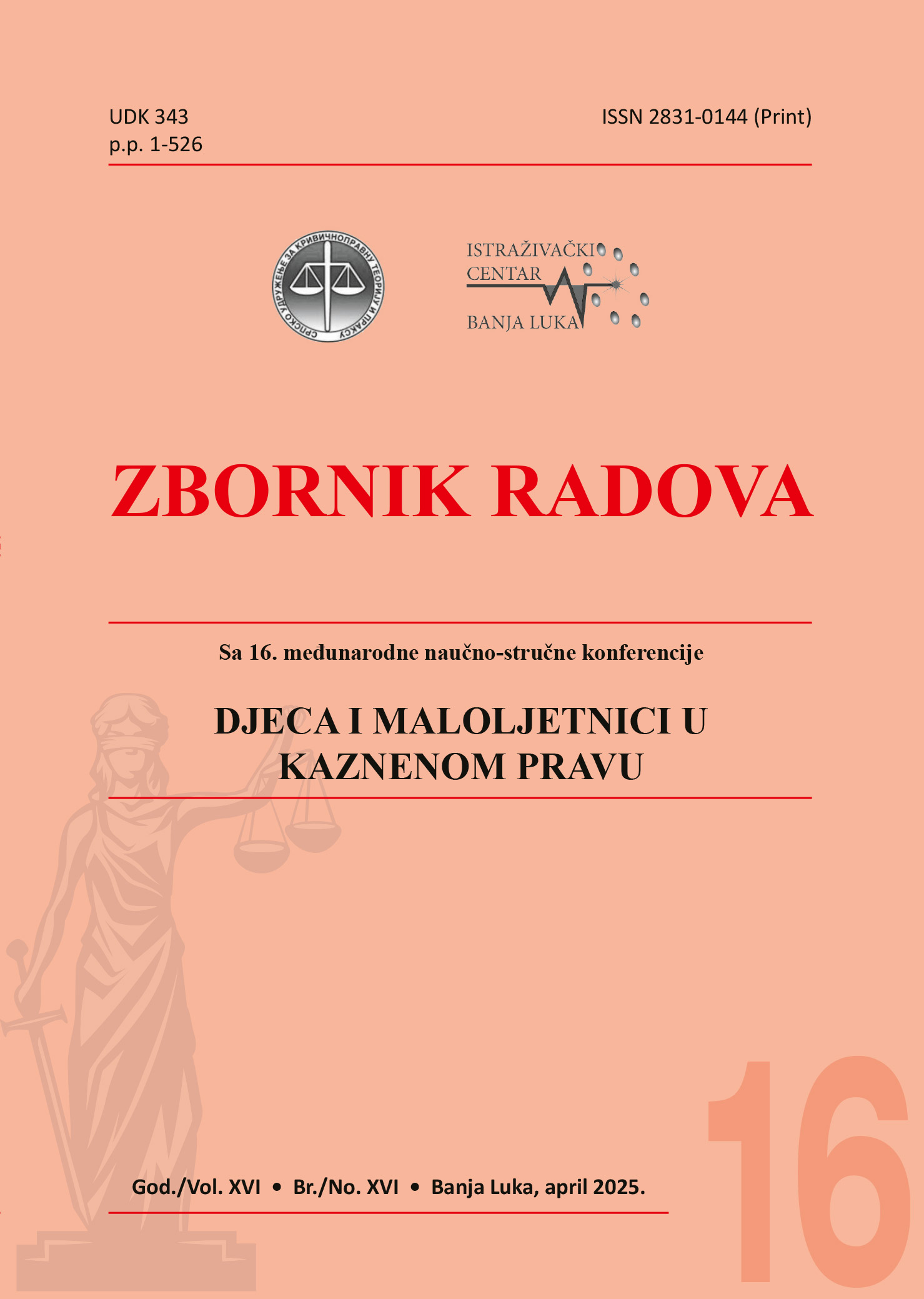„CYBER BEGGING“ AS A FORM OF CHILD LABOR
DOI:
https://doi.org/10.7251/CEST1625463BKeywords:
cyberspace, child labor, human trafficking, (cyber) begging, legislationAbstract
Although child labor a priori does not necessarily mean exploitation of the child, but can be considered particularly useful for building a sense of obligation and responsibility from an early age, the misuse of this sociological and legal institute is not uncommon. Domestic and most comparative labor laws allow the work of persons under the age of 18, which is considered child labor, while the minimum age for establishing employment is generally limited to over 15 years of age. In addition to age as a condition, the legality of child labor is also conditioned by voluntary consent to work, the type of work and tasks that the child performs and that such work does not affect his psycho-physical development, as well as the process of his compulsory and regular education, helth condition and the consent and supervision of parents or guardians.
However, children are often forced to work without fulfilling the above conditions, and are very often engaged in work as victims of criminal offenses, such as, among others, begging, as one of the consequences or reasons for trafficking in human beings or children, which is defined by criminal legislation as a criminal offense among other criminal offenses against sexual freedom and morality. With the development of digital technologies, the way of communicating, exchanging information, but the way of working and living in general has taken on completely new forms. Thus, the forms of child labor have developed and evolved over time, and have become part of cyberspace, within which there are numerous dangers and risks that child labor can develop into illegal labor, or child exploitation. This paper talks about the emergence of „cyber begging“ as a specific form of child exploitation and child labor.
